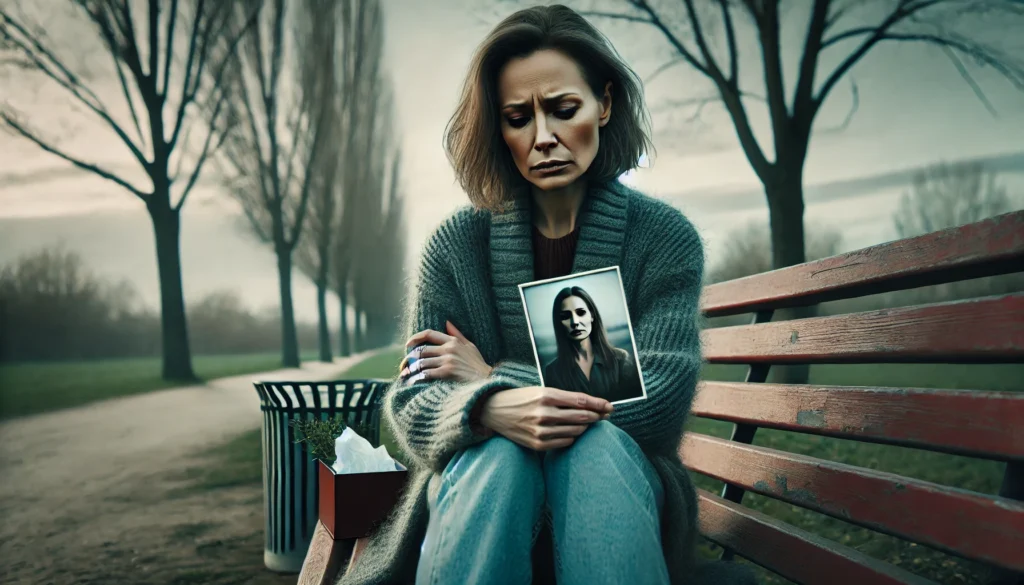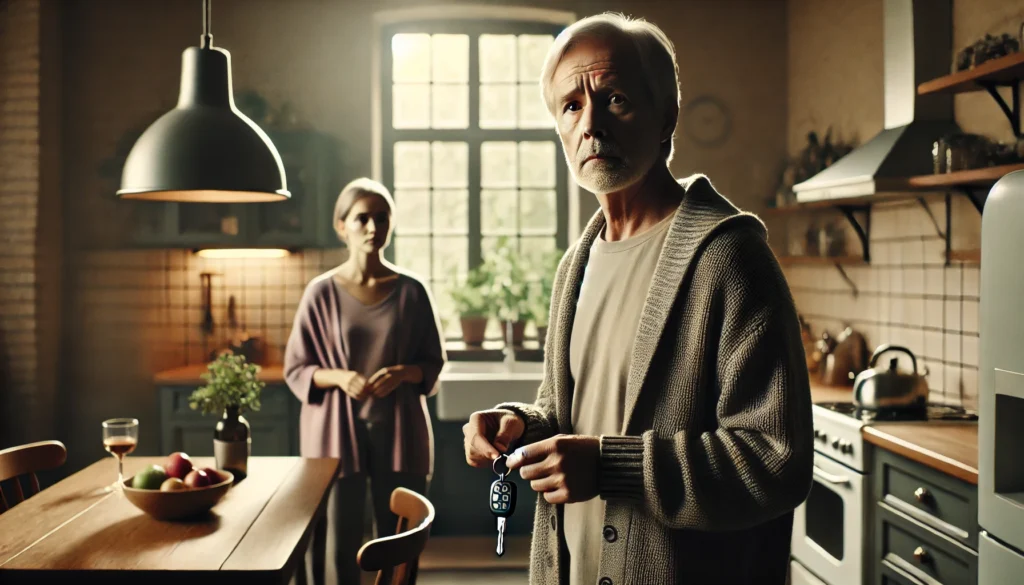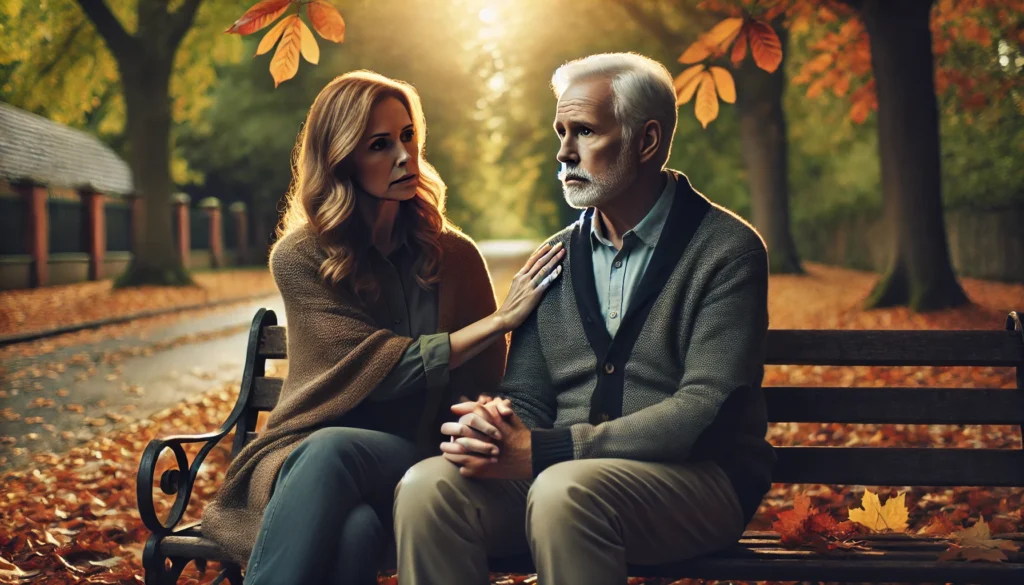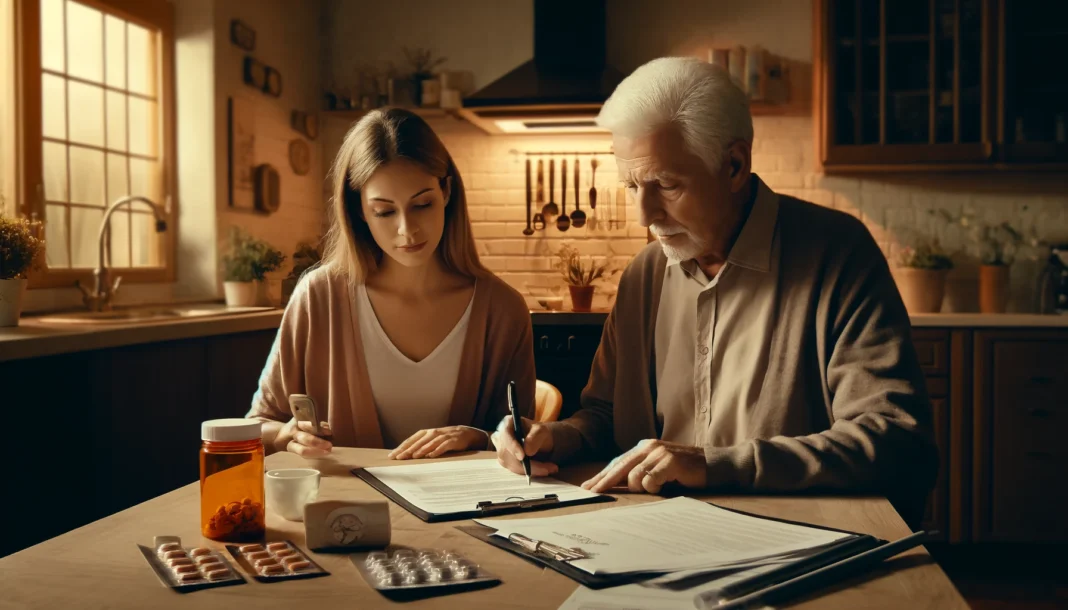Introduction
Dementia doesn’t arrive with flashing signs or loud announcements. It tiptoes in slowly, cloaking itself in forgetfulness, changes in personality, and subtle shifts in daily behavior. For many, the realization comes not with a diagnosis but with a feeling—a gut instinct that something about a loved one has changed. You might think to yourself, “I think my husband has dementia,” or feel shocked when a friend confides, “My best friend has dementia and I missed the signs.” Often, this process is emotionally loaded and layered with self-doubt, denial, and the question: what do you do next?
You may also like: How to Stop Cognitive Decline: Science-Backed Steps for Prevention and Brain Longevity
This article serves as a comprehensive guide for friends, spouses, and caregivers who find themselves in that uneasy space of concern. Whether you’re wondering what to do if you suspect someone has dementia or grappling with the guilt of thinking, “My best friend has dementia and I had no idea,” this guide will walk you through every emotional and practical step. From how to initiate difficult conversations to identifying symptoms, seeking a medical diagnosis, building a care plan, and navigating life after a diagnosis, you’ll find clarity, support, and resources that align with both compassion and science.

Understanding the Early Signs and Red Flags
Before taking any action, understanding the common early signs of dementia is crucial. Many people mistake these early warning signals for normal aging, especially when memory lapses are minor or inconsistent. However, when patterns start to emerge—such as asking the same questions repeatedly, struggling to follow conversations, losing track of time, or misplacing items in unusual places—it might be more than simple forgetfulness.
People experiencing early dementia may begin to withdraw from social activities or appear apathetic about hobbies they once loved. They may also become irritable, confused in familiar environments, or express paranoia or suspicion, even toward people close to them. For spouses, this can be particularly painful: one day you find yourself whispering, “I think my husband has dementia,” and struggling to reconcile the person you know with the behaviors you now see. For friends, the shock may be even greater, leading to deep regret, such as thinking, “My best friend has dementia and I had no idea.”

When Intuition Meets Concern: What to Do If You Suspect Someone Has Dementia
Once you’ve identified a pattern that feels concerning, it’s natural to wonder what to do if you suspect someone has dementia. Start with gentle observation. Keep a personal journal or mental log of specific behaviors you’ve noticed. Are they forgetting important appointments? Are they repeating the same story within a short time span? Have they gotten lost in familiar places?
These notes are not to diagnose but to help you articulate your concerns more clearly to the person or to a medical professional. The next step is initiating a conversation—a moment that requires empathy, patience, and timing. Choose a private, calm setting where the individual feels safe. Use non-accusatory language like, “I’ve noticed you’ve been forgetting things more often lately, and I’m worried. Have you noticed that too?” The goal is not to confront but to open the door to a shared inquiry.
In cases where you’re unsure how the person will respond, or if you fear they might become defensive, it can help to frame the discussion around health in general. Instead of jumping into memory issues, begin by talking about routine checkups, sleep, nutrition, or stress, gradually guiding the conversation toward cognitive health.
My Best Friend Has Dementia and I Missed the Signs: Coping with Guilt and Regret
Realizing too late that someone you love has been struggling with dementia can be heartbreaking. The admission “My best friend has dementia and I missed the signs” is often followed by waves of guilt, helplessness, or even denial. It’s important to understand that dementia is insidious; even trained professionals sometimes miss the signs early on. Guilt serves no purpose other than to weigh you down.
Instead, shift your focus to how you can show up now. Reconnect. Apologize if needed, not because you were negligent but because you care. Take steps to understand their current needs, preferences, and routines. Be willing to relearn your friend’s communication patterns. Most importantly, forgive yourself. Recognizing the signs in hindsight is painful, but what you do moving forward is what counts.

I Think My Husband Has Dementia: Navigating Spousal Uncertainty
There are few experiences more intimate—or disorienting—than believing that your life partner may be developing dementia. Thoughts like “I think my husband has dementia” often come with intense emotional reactions, ranging from fear to denial to anticipatory grief. When your partner changes in ways that make them seem like a stranger at times, it’s common to feel alone, even in the same room.
If you’re in this position, it’s crucial to educate yourself thoroughly on dementia and how it affects spousal dynamics. Often, spouses take on the role of caregiver gradually and without preparation, which can lead to burnout, resentment, or depression. It helps to speak with a therapist, join a spousal caregiver support group, and connect with organizations such as the Alzheimer’s Association.
Start recording your observations of cognitive and behavioral changes, not just for your own understanding but to help a healthcare provider build a clinical picture. When it comes time to involve a physician, do so with love and respect. Frame the decision around the desire to ensure your partner’s well-being, and not around fault or failure.
The Importance of a Professional Diagnosis
Though signs of dementia may be clear to loved ones, it is vital to have those observations validated by a professional medical diagnosis. Dementia is not a single disease but a syndrome with multiple potential causes, including Alzheimer’s, Lewy body dementia, vascular dementia, and frontotemporal disorders. Some reversible conditions—like vitamin deficiencies, thyroid disorders, or medication side effects—can also mimic dementia.
A clinical assessment typically begins with a detailed health history and interviews, followed by neurological and cognitive testing. Imaging tools such as MRI or CT scans may be used to assess brain structure. Blood work may rule out treatable causes.
If you’re wondering what to do if you think someone has dementia and are unsure about where to begin, start by encouraging the person to get a comprehensive health check. Offer to go with them. Frame it as a general wellness visit. The presence of a supportive friend or spouse can ease anxiety and improve cooperation.
What to Do If You Think Someone Has Dementia But They Deny It
Denial is one of the most complex barriers to early dementia intervention. If your loved one refuses to acknowledge there is a problem, try to avoid direct confrontation. Instead, build trust and look for opportunities to discuss health in broader terms. Focus on safety, independence, or quality of life. Ask open-ended questions like, “Have you noticed any changes in how you’re feeling lately?” or “Would it be helpful to talk with a doctor, just to be sure everything’s okay?”
In the meantime, take steps to ensure their safety discreetly. This could include organizing a family meeting, managing medications, or ensuring they are not driving unsafely. As cognitive changes become more apparent, the need for intervention becomes more urgent—but always lead with empathy, not force.
Building a Support Network
Whether your loved one has received a diagnosis or you’re still in the discovery phase, building a support network is essential. Dementia caregiving is not a solo mission. Involving others helps distribute responsibilities and offers emotional relief. Identify family members, friends, community organizations, and healthcare providers who can become part of the care team.
If you’re the friend who just realized, “My best friend has dementia and I had no idea,” reach out to their family. Ask how you can help. Offer specific support: “Can I accompany them to an appointment? Can I bring meals or help with errands?” Friendship remains critical even after a diagnosis, offering continuity and emotional grounding.
Spouses, especially those thinking, “I think my husband has dementia,” should not hesitate to contact a social worker, case manager, or elder care attorney. These professionals help navigate legal planning, long-term care arrangements, and financial resources.

Care Planning and Long-Term Considerations
Care planning involves multiple dimensions—medical treatment, legal documentation, housing decisions, and emotional support. It’s helpful to begin with a care plan checklist that includes durable power of attorney, advance healthcare directives, wills, and discussions about future living arrangements.
You don’t need to solve everything in one week. Begin with small steps: schedule that doctor’s appointment, start conversations about safety and independence, and research local memory care resources.
One of the most compassionate actions is aligning care with the individual’s values. Ask questions like, “What would you want if you couldn’t make decisions for yourself?” Document these preferences before the disease progresses further. Whether you’re a friend who just found out or a spouse living with the daily impact, these preparations become the backbone of sustainable care.
Frequently Asked Questions
1. What should I do first if I think my spouse or friend has dementia?
The very first step is observation—noticing consistent patterns of memory loss, confusion, or behavioral change that interfere with daily life. If you’re telling yourself, “I think my husband has dementia” or “My best friend has dementia and I missed the signs,” don’t dwell on guilt. Instead, document your concerns and gently approach the person in a calm, loving environment. Express your worry as care rather than criticism. Then, encourage a comprehensive medical evaluation to begin the path to understanding what is truly happening.
2. How do I differentiate between normal aging and dementia?
Some forgetfulness is natural with aging, like misplacing keys or occasionally forgetting names. However, dementia symptoms are more severe and persistent. They include forgetting familiar people or places, getting lost in familiar neighborhoods, struggling to follow conversations, or exhibiting mood changes that are out of character. If you’re wondering what to do if you think someone has dementia, the clearest differentiator is whether their cognitive challenges interfere with daily life.
3. What if my loved one denies anything is wrong?
Denial is common. The best approach is to avoid confrontation. Instead, focus on related concerns such as safety, wellness, or stress. Frame the need for medical evaluation around health maintenance. For instance, you might say, “I’ve noticed a few things that worry me. Can we just check in with the doctor together?” You might also consider consulting the physician separately to voice your concerns and request a screening during a routine check-up.
4. How can I support someone after a diagnosis?
Support involves emotional presence, consistency, and adaptability. Whether it’s your spouse, friend, or family member, be someone who listens without judgment. Learn about dementia’s progression so you can adapt communication and care strategies as needed. Help manage medications, attend medical appointments, and participate in memory-strengthening activities. Also, be sure to include them in social life—they are still themselves in many ways, and dignity should always be preserved.
5. I feel guilty I didn’t notice earlier. What should I do?
Guilt is a natural response, but it serves little constructive purpose. Remember that dementia develops slowly and is often masked by normal aging or stress. Thinking, “My best friend has dementia and I had no idea,” doesn’t mean you failed them. What matters now is your willingness to be present, supportive, and proactive. Your friend or loved one needs connection more than perfect hindsight.
6. How do I manage my own stress as a caregiver or close friend?
Caregiving, even emotionally from a distance, is demanding. Make time for your own well-being. Join support groups, either online or in person, and seek therapy if you’re feeling overwhelmed. Practice self-care routines, and don’t hesitate to ask for help from others in your network. Remember: your stability is part of their support system. Even if you’re thinking “what to do if you suspect someone has dementia,” don’t do it alone.
7. Can dementia be treated or slowed?
While there is no cure, certain medications can slow the progression or manage symptoms of dementia, especially when started early. Cognitive therapies, physical activity, social engagement, and proper nutrition also contribute positively. If you suspect dementia, prompt diagnosis and early care planning improve both quality of life and long-term outcomes.
8. Should I involve other family and friends?
Absolutely. Dementia is a community issue. Whether you’re wondering what to do if you think someone has dementia or realizing that “my best friend has dementia and I missed the signs,” involving a broader support network provides emotional relief and practical assistance. Create a shared communication plan and assign roles if caregiving becomes more intensive.
9. How do I talk to children or teens about a loved one’s dementia?
Children are perceptive. It’s better to explain dementia in age-appropriate terms than to leave them confused. Use simple language like, “Grandma’s brain is having trouble remembering things.” Encourage questions and emotional expression. Involving them in supportive roles can also be healing for both the child and the loved one affected.
10. What legal steps should I take after a diagnosis?
Early diagnosis offers a critical window for legal preparation. Discuss and document the individual’s wishes for future healthcare, finances, and living arrangements. Set up powers of attorney and update wills or estate plans. It might also be useful to consult an elder law attorney. These measures protect the individual’s rights and reduce family conflicts later on.

Conclusion
When you think someone you care about might be showing signs of dementia, you face an emotional crossroads. Whether you’re whispering, “I think my husband has dementia,” or sitting with the regret of thinking, “My best friend has dementia and I missed the signs,” the path ahead can feel uncertain and overwhelming. But you are not powerless.
The first step is noticing. The second is caring enough to act. From learning what to do if you suspect someone has dementia to supporting them through diagnosis, treatment, and beyond, every step you take affirms love, loyalty, and commitment. Whether you’re a spouse, a close friend, or a neighbor who noticed the signs others missed, your role matters deeply.
Be gentle with yourself. Be informed. Take action not from panic, but from purpose. In doing so, you help preserve dignity, safety, and connection for someone whose world may be slowly changing—but who still needs you more than ever.
Was this article helpful? Don’t let it stop with you. Share it right now with someone who needs to see it—whether it’s a friend, a colleague, or your whole network. And if staying ahead on this topic matters to you, subscribe to this publication for the most up-to-date information. You’ll get the latest insights delivered straight to you—no searching, no missing out.
Further Reading:
Understanding Age-Related Cognitive Decline: When Mental Deterioration Is Normal vs. Concerning
Why Am I Forgetting Things at 20? Understanding Memory Loss in Your 20s and What to Do About It



